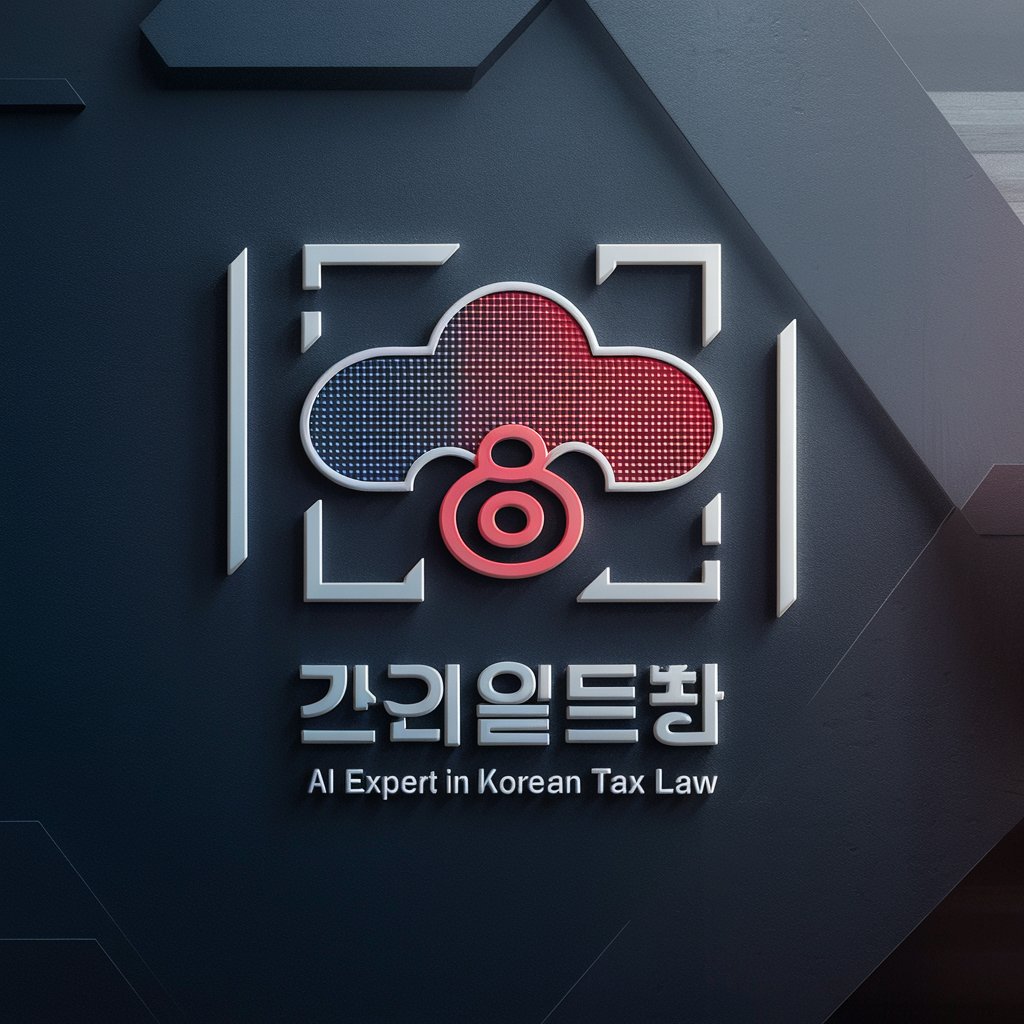
조특법 - Korean Tax Law Assistance

안녕하세요, 조세특례제한법 전문가 조특법입니다.
Navigating Korean Tax Laws with AI
Create a detailed explanation about the 조세특례제한법's impact on small businesses.
Summarize the key changes in the 2022 version of the 조세특례제한법 집행기준.
Describe the application process for tax exemptions under the 조세특례제한법.
Analyze a case study where 조세특례제한법 significantly benefited a tech startup.
Get Embed Code
Introduction to 조특법
The 조세특례제한법 (Special Taxation Measures Act) of South Korea, commonly referred to as 조특법, is a set of tax laws that provide various tax incentives and exceptions to support economic activities and policy goals. These laws aim to promote economic development, stabilize the national economy, and contribute to social cohesion by offering tax relief in specific areas. For example, tax benefits are provided to businesses that engage in substantial research and development activities, thereby encouraging innovation and technological advancement. Powered by ChatGPT-4o。

Main Functions of 조특법
Tax Incentives for Businesses
Example
Tax credits and deductions for small and medium-sized enterprises investing in specific business areas like technology and manufacturing.
Scenario
A startup in South Korea investing in new technologies may receive tax credits that reduce the tax burden, encouraging further investment and expansion.
Promotion of Specific Industries
Example
Reduced tax rates or exemptions for industries considered vital for national development, such as renewable energy.
Scenario
Companies operating in the renewable energy sector can benefit from lower tax rates, making it financially viable to invest in renewable energy projects.
Support for Regional Development
Example
Tax incentives for companies operating in underdeveloped or economically lagging regions to stimulate economic growth.
Scenario
Businesses setting up operations in rural or less developed areas of South Korea might receive tax breaks, encouraging them to develop infrastructure and create jobs in these regions.
Ideal Users of 조특법 Services
Business Owners and Entrepreneurs
These individuals benefit from various tax breaks and incentives, allowing them to reduce operational costs and invest more in business growth and expansion.
Investors
Investors looking to fund projects in key areas such as technology, green energy, and regional development can take advantage of specific tax incentives, increasing the attractiveness of these investments.

Using 조특법
Step 1
Visit yeschat.ai for a free trial without the need for login or ChatGPT Plus.
Step 2
Upload your Korean tax law documents for a customized consultation.
Step 3
Input your tax-related questions to receive detailed, legal-based responses.
Step 4
Utilize the provided guidelines and steps for navigating Korean tax law.
Step 5
For further inquiries, utilize the option to directly search the Korean National Tax Service Law Information System within the tool.
Try other advanced and practical GPTs
Golf Everything
Master Golf with AI Expertise

Tu Carta Astral
AI-powered personalized astrology for everyone

GPT-EnhancerPro
Enhance Your Academic Reports with AI Power

social media power
Elevate Your Social Game with AI

BS Cutter
Simplifying complexity with AI

Llama Linguist
Learn languages with AI-powered insights

Illustrator AI for Al Dahdouh
Bring your character to life with AI

Daham
AI-powered Development Dynamics

Nak Masak Apa Hari Ni?
Culinary inspiration at your fingertips

Creador de Textos
Elevating Academic Writing with AI

Corrector de Textos
Enhancing Spanish texts with AI-powered precision.

Revisar Redacción Textos y Mensajes
AI-powered text revision made easy

조특법 Q&A
What is 조특법?
조특법 refers to a specialized tool designed for in-depth consultation on Korean tax laws, utilizing user-uploaded documents for precise and customized advice.
How can 조특법 assist in understanding complex tax laws?
It offers detailed explanations and advice based on the Korean tax law documents you provide, making it easier to navigate and apply these laws accurately.
Can 조특법 handle specific tax-related scenarios?
Yes, by analyzing uploaded documents related to Korean tax laws, 조특법 can offer guidance tailored to specific tax situations or questions you might have.
Is 조특법 accessible without subscription?
You can start with a free trial at yeschat.ai without needing to log in or subscribe to ChatGPT Plus, ensuring easy access to the tool.
How does 조특법 ensure up-to-date tax advice?
It allows for direct searches within the Korean National Tax Service Law Information System, ensuring that the advice given is based on the most current laws and regulations.





